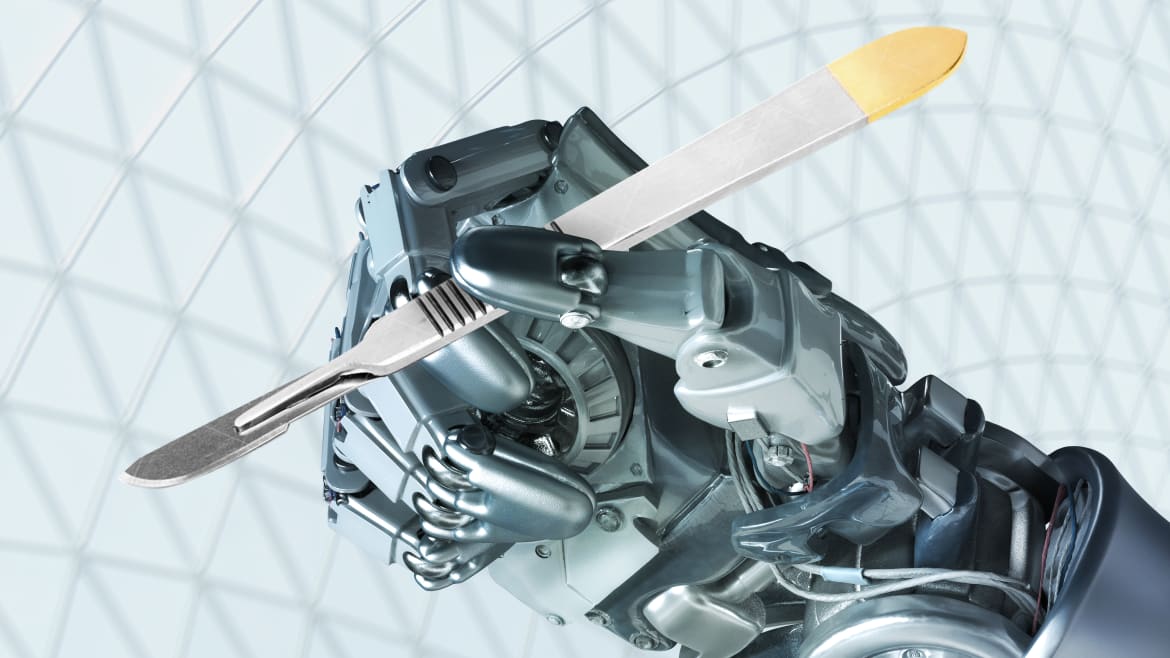Paper Boat Creative via Getty
One of the questions that NASA has to solve before launching the first crewed trip to Mars is how to take care of astronauts during a medical emergency. Something like, say, a burst appendix is fairly run-of-the-mill for doctors to resolve on Earth. But in space, things could get dire very quickly if something isn’t done about it soon. There aren’t zero-gravity hospitals where you have access to medical supplies and a community of trained experts who know what they’re doing.
Luckily, engineers at the University of Nebraska-Lincoln have developed a solution that could allow doctors on Earth to help off-planet patients. Using a $100,000 award from NASA, the team plans to build a remote surgical robot and launch it to the International Space Station in 2024 for live testing, the school announced on Monday. The miniaturized in vivo robotic assistant, or MIRA, is designed to be small enough to be inserted in a small incision. This allows surgery to be conducted in a minimally invasive way.
“NASA has been a long-term supporter of this research and, as a culmination of that effort, our robot will have a chance to fly on the International Space Station,” Shane Farritor, the inventor of MIRA and engineer at UNL, said in a press release.
Got a tip? Send it to The Daily Beast here

